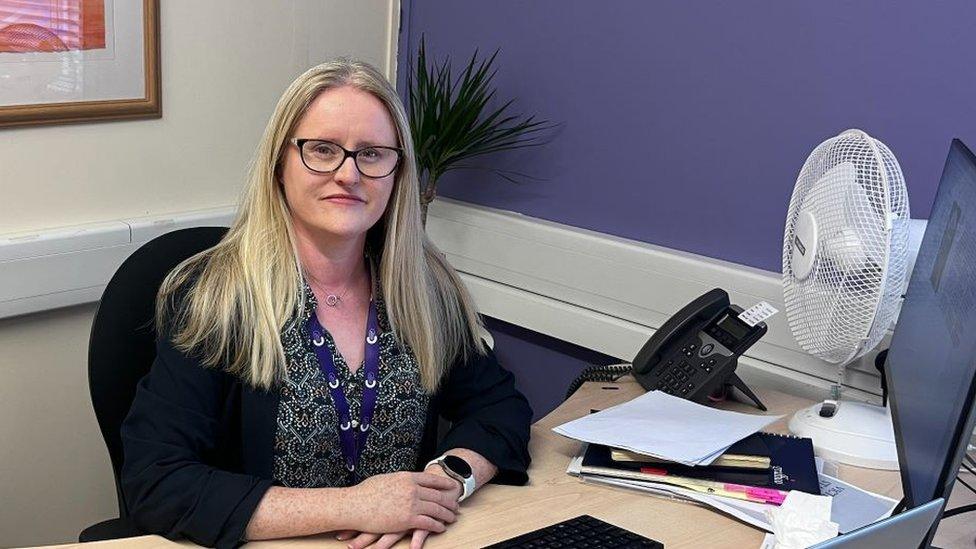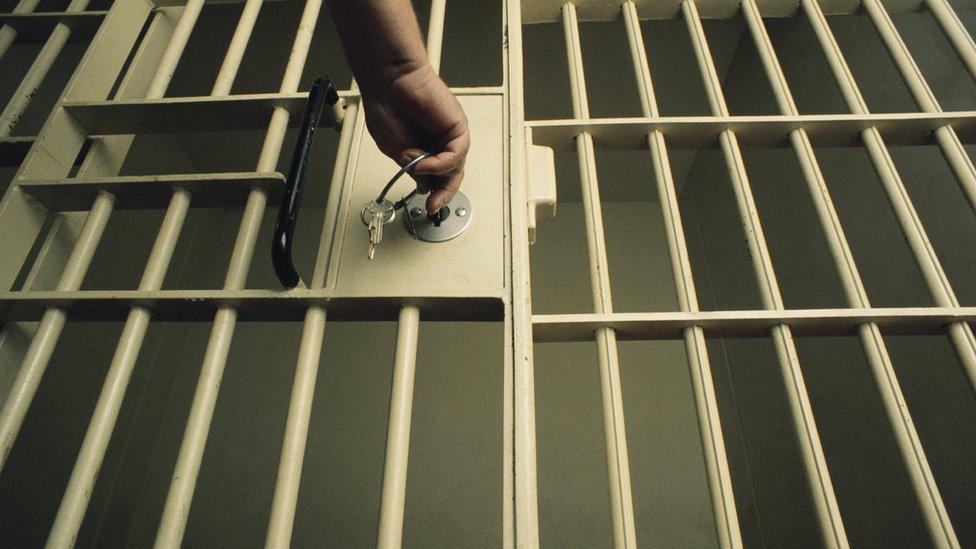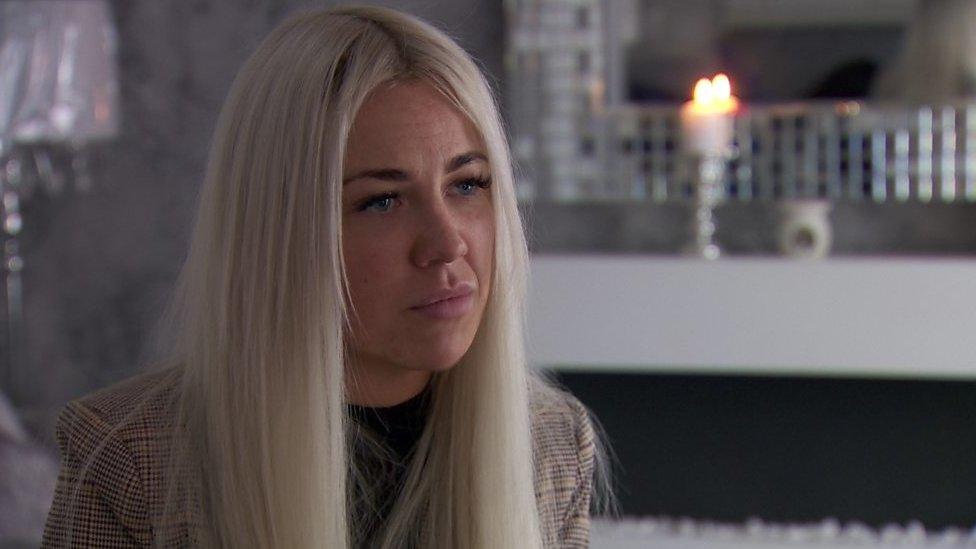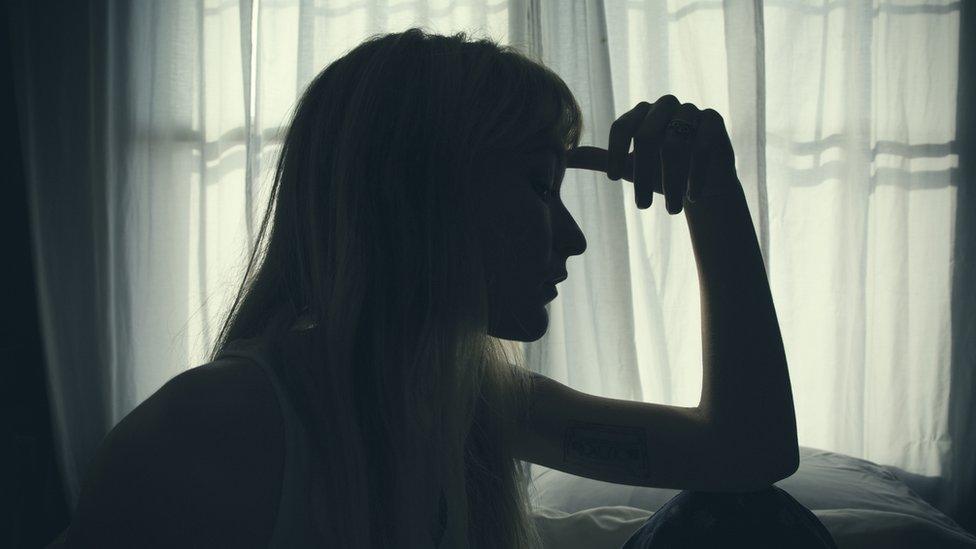Sex offence victims 'lost in broken justice system'
- Published
Sexual offence victims say they are alienated by the court process
Three victims of sexual offences in Northern Ireland say they were lost in a broken criminal justice system and made to feel insignificant.
One said the process of cross examination was so bad that she considered taking her own life.
The women say there must be more support for victims through the often complicated criminal justice process.
No single agency is responsible for the failings these three women's experiences highlight.
All say when asked that victims should be treated sensitively and point towards specific resources for victims of sexual offences, including independent advisers.
'Delusional'
One woman, who has chosen to stay anonymous, waited years for her case to come to court.
She said the wait had a terrible impact on her mental health but was nothing compared to what happened next.
She told BBC News NI: "When it eventually came to court I spent two and a half days on the stand and it was absolutely horrific.
"The defence barrister said I had post-natal depression and was fantasising. He said I was delusional.
"The cross examination was the worst of any of it. if I didn't have my children to live for I would have come off the stand and committed suicide that day."
It is understood that this woman's case was particularly long and faced a number of delays, partly because there were multiple complainants and dozens of charges.
The Police Service of Northern Ireland (PSNI) responded: "We understand the criminal justice process can be a difficult and traumatic experience to navigate and any delays in court proceedings can cause victims significant additional distress and frustration.
"This is something we are working hard to address with our criminal justice partners. We want to minimise any delays in the system."
'Not knowing what to expect'
Another woman, Amanda Brown, was abused by her stepfather David Tweed, a well-known unionist politician and Irish international rugby player.
She told BBC News NI that without any official legal support she felt lost.
She said: "I was going in there completely blind to the entire process not knowing what to expect and that in itself was probably the biggest cause of anxiety, not to mention that you're going in to talk about your trauma.
"I received a letter telling me to appear in court as a witness.
"I'm not a witness. I'm a victim. I experienced this. I am the person it happened to.
"The language was off-putting, I felt like I wasn't important."
PPS senior assistant director Marianne O'Kane said that victims providing evidence in court are referred to as witnesses, but do have particular rights in relation to being victims.
'A cultural issue'

Geraldine Hanna says change is not happening fast enough for victims of sex offences
Amanda's case went through the courts over a decade ago but the Commissioner for Victims of Crime Geraldine Hanna says not enough has changed in the time since.
"Whenever I speak to victims who are going through the system now or have just come out of the system they're still making complaints about issues we should have dealt with ages ago," she said.
"Things like a female rape victim ringing the police to report a rape and having two male officers arrive at her home without any warning.
"People not getting updates on the progress of the case, not getting a referral to a support agency.
"I'm still hearing the same issues that I heard five or 10 years ago.
"A lot of the agencies are under resourced and over stretched but also there is a cultural issue that we need to address particularly around sexual violence victims.
"Victims are not being prioritised.
But she did have a positive message for victims going through the system, or anyone considering reporting a sexual offence: "There are a lot of dedicated people ready to help, we just need to help people navigate the system better."
Victims have access to independent sexual offences legal advisers.
There are three full time advisors funded by the Department of Justice and they are independent from the police and prosecution services.
'Worst thing I ever did'
Another woman, who spoke to BBC News NI anonymously, described her experience in the criminal justice system as "horrendous".
She said of her court case: "Looking back I wish I'd walked away after meeting the barrister who ran the case. He made me feel so insignificant.
"He told me: 'Just remember, you're no longer a victim now, you're a witness for the PPS.'"
She told us that the barrister also said: "And don't be crying when you're giving your evidence, the jury won't be able to hear you".
She added: "Going ahead with the court case was the worst thing I ever did in my life. I had confidence I would be treated with respect through the whole process but, my goodness, that couldn't have been further from the truth.
"I couldn't in good conscience encourage anyone to go down the route that I did. It was every bit as traumatic as the abuse itself.
"I hear people say it's broken, it needs fixed but I think it was never built right in the first place."
The Public Prosecution Service (PPS) said: "It should be noted that counsel's role is to present the case effectively at court. However the PPS would expect anyone who appears for us to treat a victim with sensitivity and understanding."
Ms O'Kane of the PPS said: "We want to ensure victims feel treated with sensitivity and respect, whatever the outcome of their case.
"This is a key priority at the most senior level in the PPS."
Recent reports by the inspector for Criminal Justice Northern Ireland have found that many victims of all types of crime "experience a fragmented approach to their criminal justice journey", external.
The Gillen review, which was published in 2019, assessed the handling of serious sexual offence cases in Northern Ireland but fewer than half of its 250 recommendations have been fully implemented.
The Department of Justice (DoJ) says it is "an ongoing process".
If you have been affected by any of the issues raised in this article you can visit the BBC Action Line for help.
- Published6 June 2023

- Published24 February 2020

- Published21 June 2022
